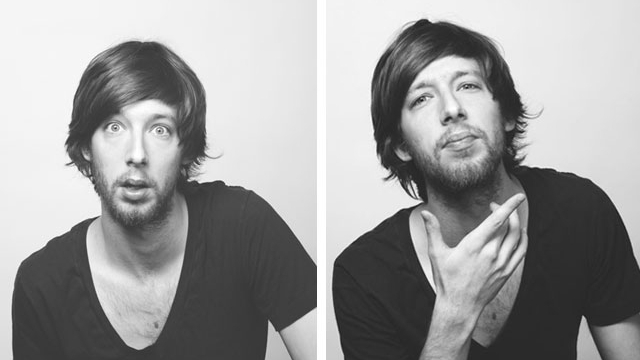
The issue moved me because I feel stateless even though I am not. I feel a human fraternity, I wasn't born in violence, I grew up in a place where I was encouraged to go seek out other cultures and so in that sense, I feel like I'm part of a worldwide population, but I'm not defined by the specific place where I was born.
With European capitals, it's a given that you'll find a theatre per X amount of people. It's an established fact, there are theatres everywhere. Because of francophone culture here, there's part of that spirit that remains. There's a strong performing arts culture, but having said that, just like everywhere else in America, that's in danger of disappearing. But there's also resistance, thanks to the French's culture of resistance. The culture of going out, hearing someone talk, going to meet up with the community in a given space, that exists here.
I'd say that within non-commercial art forms, there exists a very real métissage. Unfortunately though, perhaps, for everything that's slightly more institutional, there's very little crossover. Having said that, there are areas in which Anglos and Francos collaborate, and I've seen it particularly in the dance world. Maybe that's because it's a non-verbal language. I've also seen it care of certain theatre partnerships. And with music, of course. Now, for everything that involves verbal cues, it can be slightly more complicated, but I feel as though there's a tangible yearning to mix, blend, bleed it all together.
People like Dave St-Pierre, Christian Lapointe, Antonija Livingstone, Clara Furey, Francis Ducharme, Justin Laramée, Enrica Boucher, Simon Boulerice, Sarah Berthiaume… they're total chameleons. They did studies in acting, but wanted to write. Studies in playwriting but want to direct. This reassures me, because there's a strong desire within this community not to miss out on anything; to do everything. It's reassuring to me that isn't obsolete.
Well, the ideal of the actor who creates has grown significantly since La La La Human Steps, I believe. People like Marc Béland and Gaétan Nadeau, they proved to us that it was possible to dabble in everything at once, allowing you to breathe that way. The different forms feed off each other like that, through doing theatre, dance, music…
Dave St-Pierre. I had the pleasure of working with him during his first shows. I find the singularity of his approach admirable. His battle to remain marginal is in and of itself a defiant act. Artists face the risk of abandoning their initial ideals as shows lead to bigger shows and recognition comes knocking. Thankully and commendably, he has remained razor-sharp. He whose knife was not dulled by his years of work.
Absolutely. To have brought to fruition a crazy vision, a 4-hour theatre show, when you thought you neither had the time not the money, it's really reassuring. These are projects that are in a way unjustifiable, that are the end result of some kind of intuition, and to know that it's still possible to tap into your inner child and dream, to succeed in giving life to that on stage and that people will come, that's really reassuring.
Well, there is the possibility to open coffers and mount incredible projects. I've had the opportunity to experience it with the company [Abé Carré Cé Carré, with Mouawad]. It's a really big company when we do Wajdi's shows, and a small one when we do mine, as I'm just beginning. I've got a foot in both worlds so I can attest to the fact that for larger-scale projects, there is funding.
If you had to single out one thing that Wajdi has taught you over the years…
You are alone. We're friends, but you're alone. That's a sentence Wajdi has repeated to me countless times. We all stand together, but we're also solitary. The collective spirit that comes with producing theatre is indeed important, and the fact that we all carry a show together, and it's reassuring to tell oneself that it's a group effort, but when you're the creator, ultimately you find yourself alone with your ideas.
I would tell myself: I will find accomplices to lean on, and they'll lean on me, and together we'll storm ahead. It's a beautiful ideal and there's some truth to it, but when you remove all the common denominators, and you peel away the layers back to when it all began, what is it that brings everyone together around an idea? It's that spark, the birthing of a kind of idea sculpture, a mosaic of all kinds of perspectives that we attempt to blend together. Ultimately, we are alone with that stream of images, and the battle with the work is a solitary one.
June 6 at noon | Théâtre Maisonneuve
Festival TransAmériques
June 4 and 5 at 7 p.m. | June 6 at 1:30 p.m. | La Chapelle
OFFTA
To read our Class of 2010 feature in its entirety, click here.